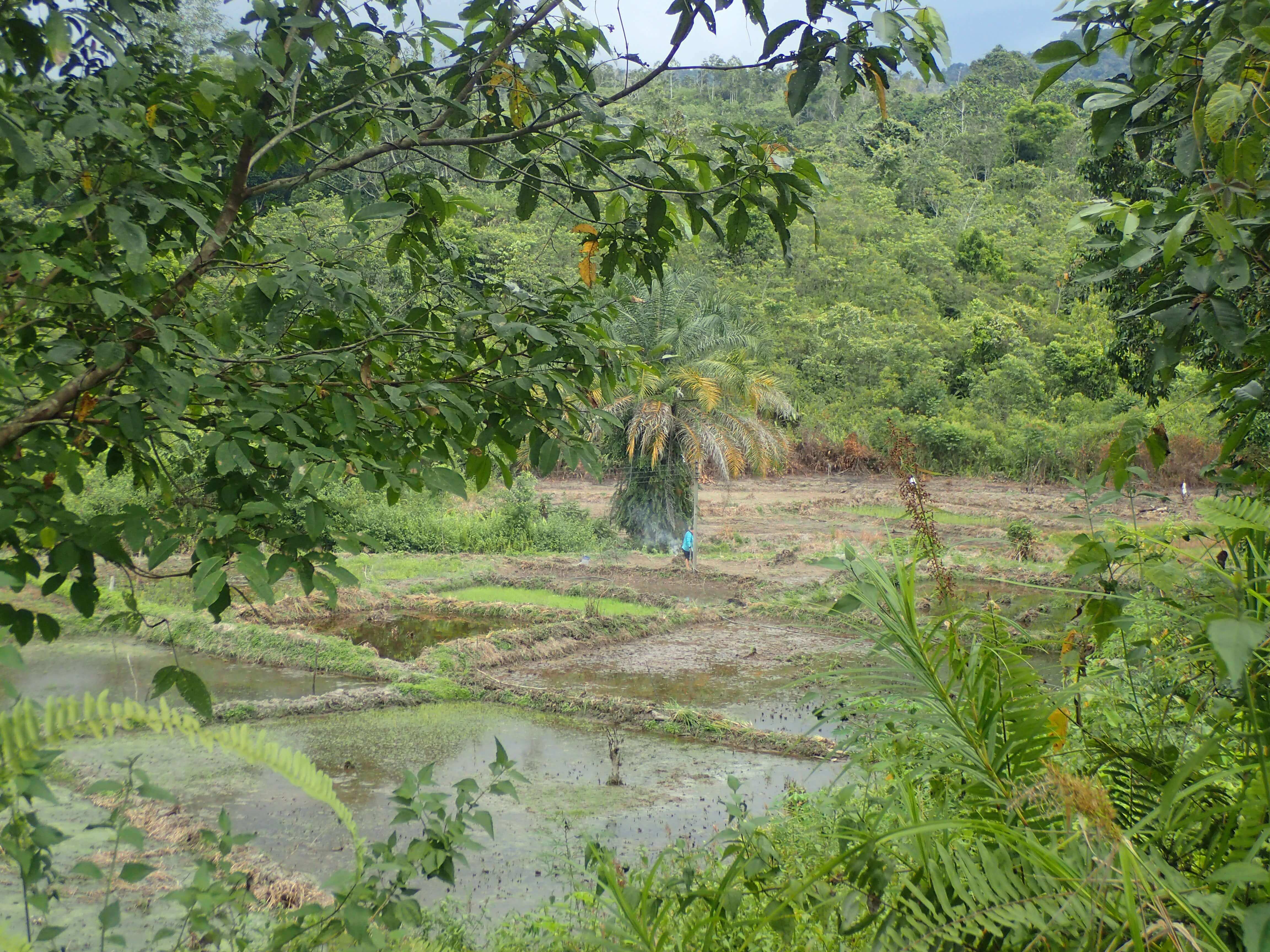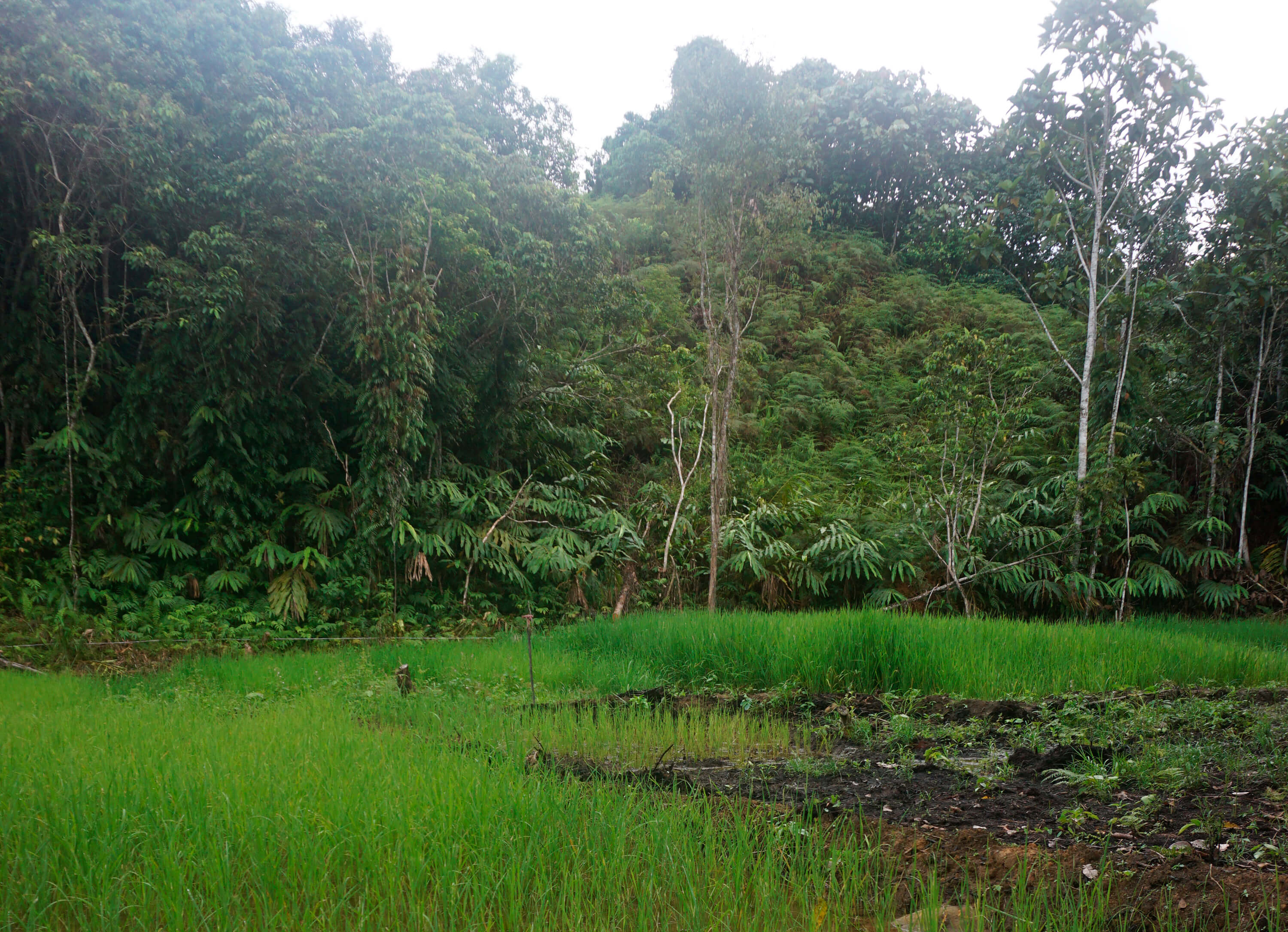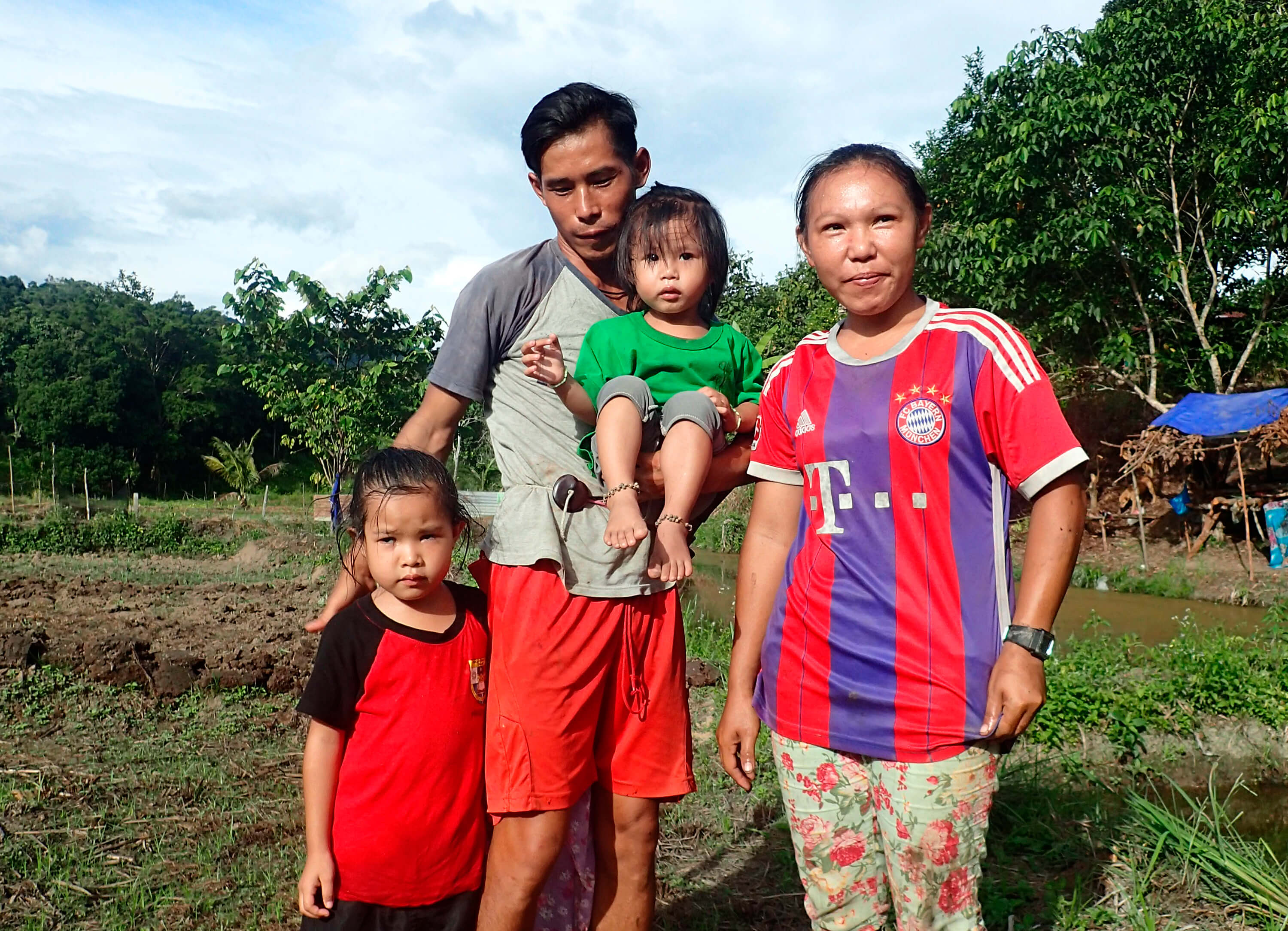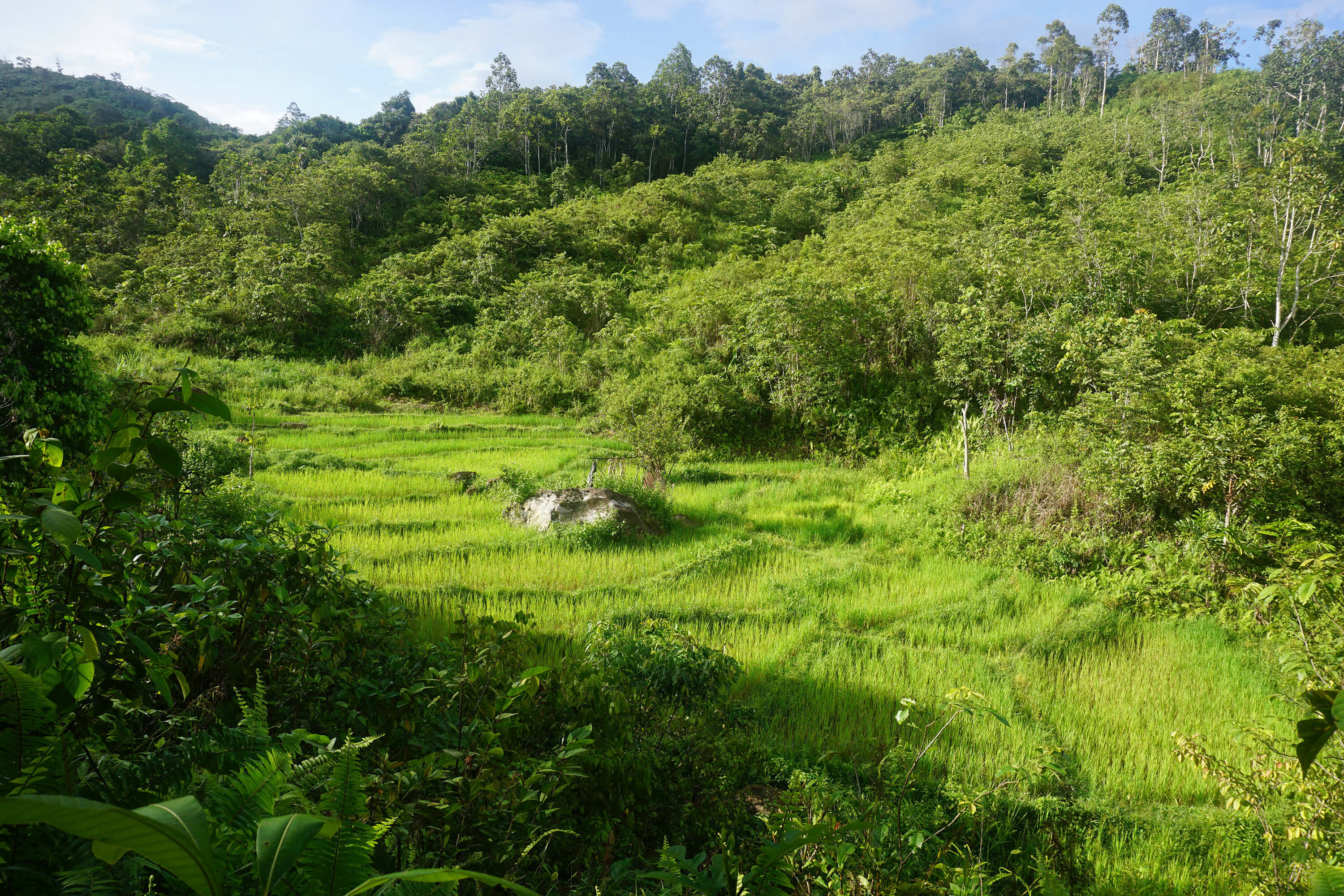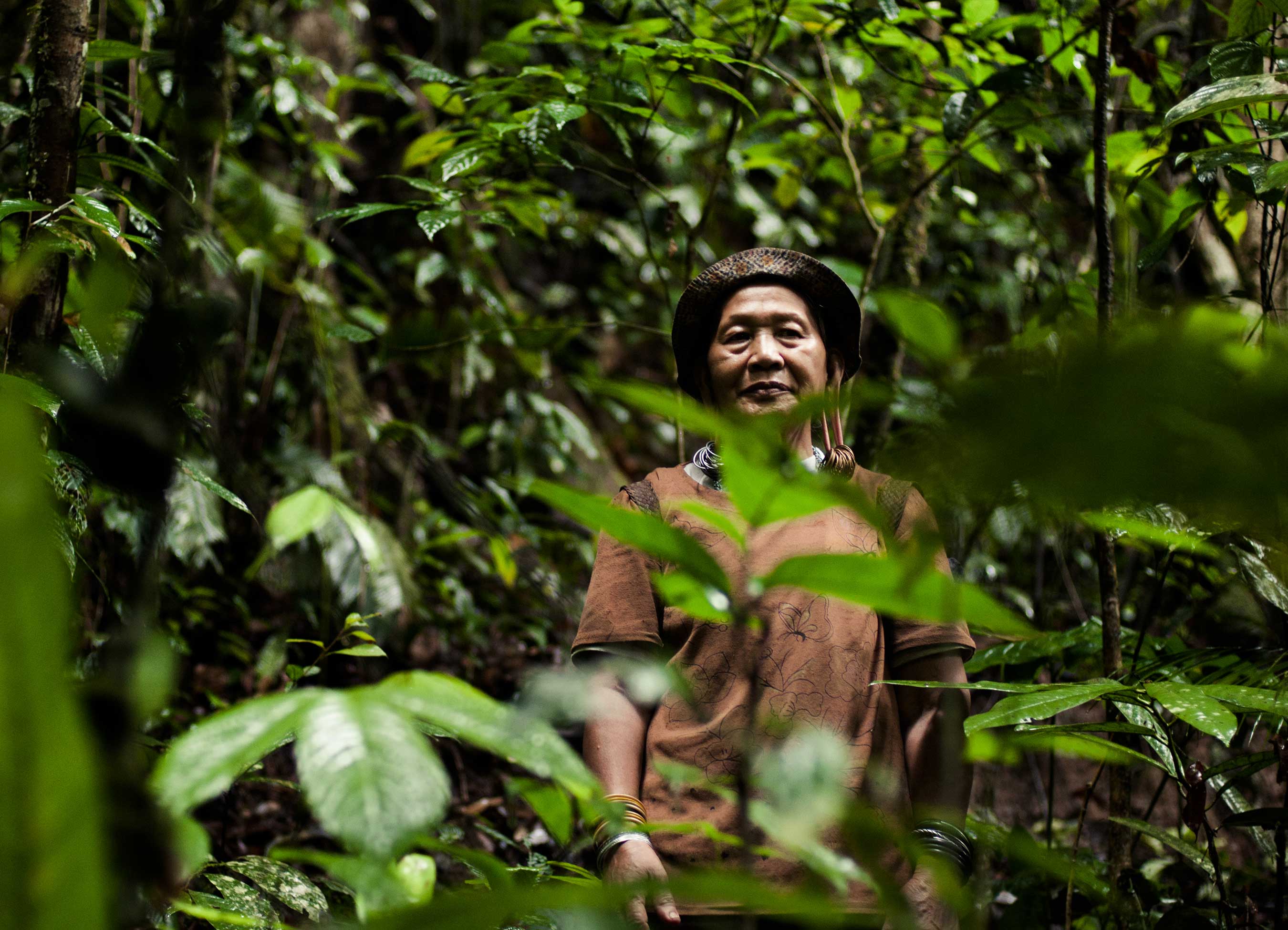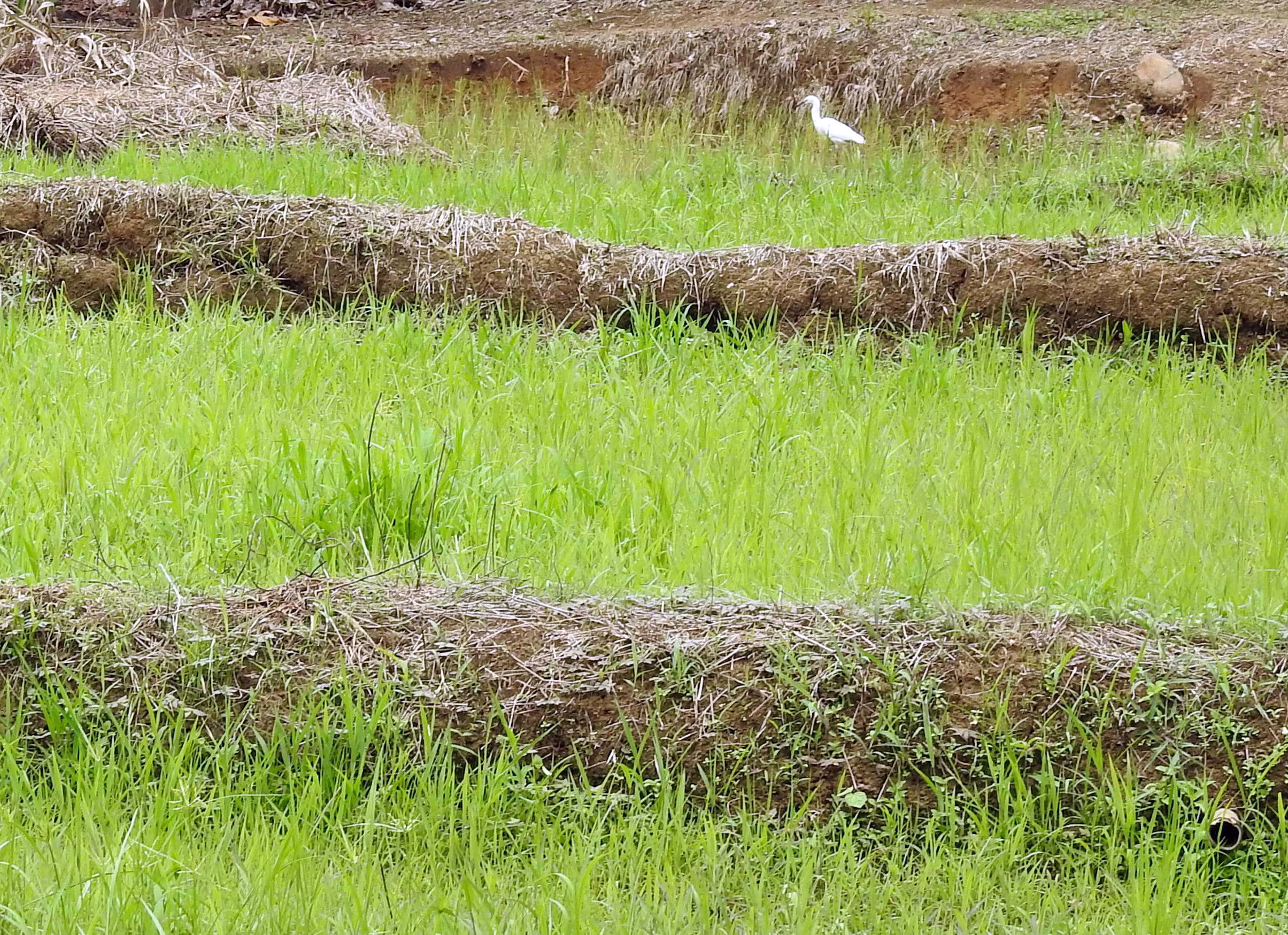
Land Use and Resources
The Penan have traditionally used their land in a highly sustainable manner for hunting and gathering. With ever more extensive logging, however, they have been increasingly forced to become settled and engage in agriculture. Since Sarawak is still pursuing a policy of large-scale industrial agriculture – including palm oil plantations for example – neither guidance nor support is available for sustainable small-scale land use and resource conservation. Rather than employ the land-intensive shifting cultivation method that is widely used in the region and requires regular clearance of rainforest, the Penan wish to adopt the more sparing and efficient method of wet rice cultivation. This, however, calls for careful planning, training and also investment in infrastructure. BMF is supporting the Penan in Long Lamai, and increasingly in the neighbouring villages too, in their endeavours to achieve sustainable land use.
Political context
Up until a few decades ago, most of Sarawak was covered by dense, untouched tropical forest. Since then, however, almost 90% of the primary rainforest in Sarawak has been cleared, primarily for export. This deforestation has been carried out almost exclusively by big companies who, alongside the politicians in charge, are the only ones to benefit from the huge profits generated by the tropical timber business. Since the days of uncontrolled deforestation are numbered, many companies are now switching to plantations of primarily fast-growing species of wood or oil palms. The Sarawak government has licensed and supported large-scale logging for many years. In the meantime, the uncontrolled and, to some extent, illegal deforestation is being criticised by politicians too, but agricultural and forestry policy remains focused on large companies with extensive plantations.
There are thus virtually no concepts or advisory structures to support the indigenous people in practising small-scale agriculture and ensuring sparing use of the forest. The Penan, who were originally nomads, are being increasingly forced to settle on account of logging and adopt the agricultural practices of their neighbouring tribes. The shifting cultivation system that is frequently practised locally is also land-intensive, however, and, given the changed circumstances with the ever-dwindling forest, this is generally no longer a sustainable approach.
The Penan's use of the land
The Penan have no one to turn to when it comes to the development of their land use planning and the protection of the forest. As in the past, they are still highly reliant on an intact forest for hunting and for gathering wild fruits and medicinal plants. In a bid to preserve the remaining forest, they are opting for wet rice cultivation, since this produces a higher yield per unit area and thus consumes less of the valuable rainforest. One obstacle is that wet rice cultivation calls for careful planning, investment in infrastructure and also training. This is where the BMF project comes in.
Aim of the project
The "Sustainable Agriculture and Resource Management" project is geared to the Penan and includes a comprehensive programme for the promotion of sustainable agricultural practices and the sparing, forward-looking use of resources.
1. Land use planning and resource management
Participatory land use planning supports communities in shaping sustainable resource management. In communities whose resources have already been overused it contributes towards the regeneration of the soil, for example, while in other communities it prevents the potential degradation of resources. The planning is based among other things on the maps produced by the Penan mapping team and on aerial photographs taken by the mapping drone.
2. Capacity-building and knowledge transfer
In addition to the collection and preparation of knowledge on wet rice cultivation, it is also particularly important to train selected, locally-based people. The latter can then organise themselves to expand on and disseminate the knowledge over the long term. When it comes to the transfer of knowledge, it is vital to have teaching and learning materials in the Penan language. This will ensure that the knowledge is accessible to a large number of people and can be used independently of specially trained individuals.
3. Infrastructure for wet rice cultivation
The BMF is supporting families and communities in the creation of wet rice systems by providing the materials required for the water supply (such as pipes) and for storing the harvest. The small-scale cultivation of wet rice generates higher yields for fewer hours of work and can considerably reduce the amount of slash-and-burn forest clearance.
In this project, the Bruno Manser Fund is working together with the Research Institute of Organic Agriculture (FiBL). A holistic approach is being adopted in a bid to ensure that the Penan's land use sustainable from an ecological, social and economic angle.
